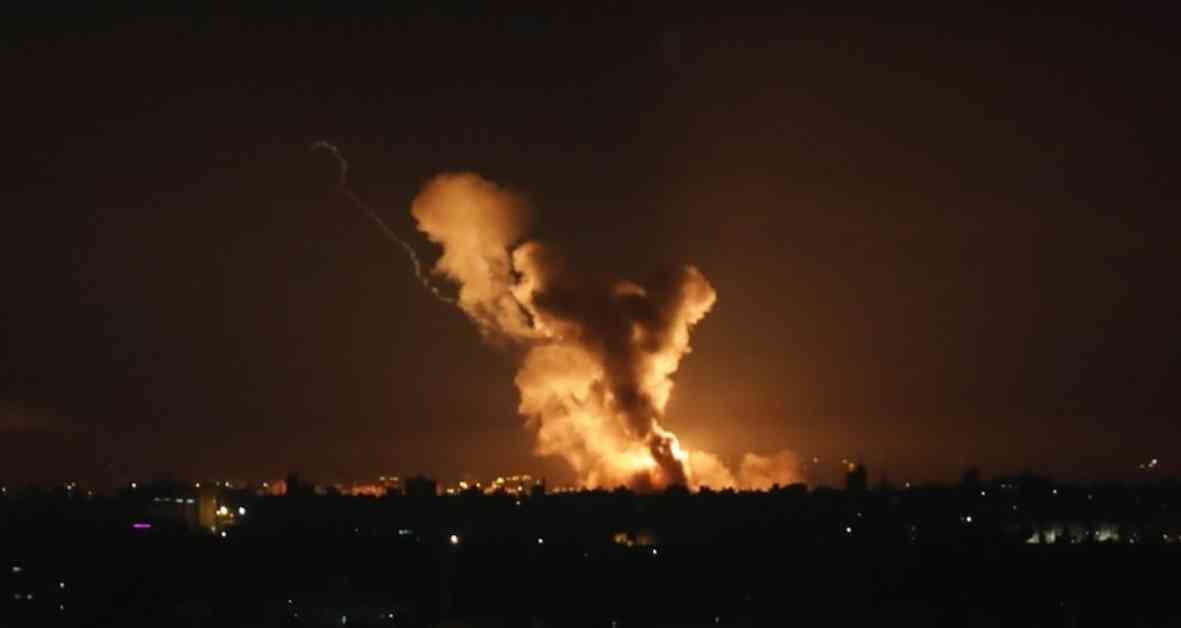Iranian Official Warns Israel Against Testing Patience
An Iranian security official, who preferred to remain anonymous, recently spoke to an AA correspondent regarding Israel’s threats of retaliation following missile attacks on Israel on October 1. The official expressed that they do not expect Israel to target significant strategic political, military, and economic centers in Iran. They believe any potential retaliation would be limited in scope and would not cross Iran’s red lines in terms of security, avoiding pushing the boundaries of patience.
The official continued to explain that in the event of a possible attack, Israelis may claim to have responded to Iran’s attack and could potentially initiate a global media propaganda campaign to justify hitting a significant target. Additionally, the official claimed that Israel is planning protests in various regions of Iran to prevent them from focusing on Lebanon and Palestine in the future.
Iran’s missile attacks on Israel on October 1 prompted strong threats of retaliation from the Tel Aviv administration. Israeli media reported that potential targets for retaliation could include the country’s oil and nuclear facilities, as well as the residence of Iran’s Supreme Leader Ayatollah Ali Khamenei, the presidential office, and the headquarters of the Islamic Revolutionary Guard Corps in Tehran.
In response to Israel’s threats, Iranian military officials stated that they would target all of Israel’s energy facilities and infrastructure in the event of any attack.
Potential Escalation of Tensions
The exchange of threats between Iran and Israel raises concerns about a potential escalation of tensions in the region. Both countries have been engaged in a long-standing conflict, with each side accusing the other of supporting terrorism and destabilizing the Middle East.
Iran’s involvement in various conflicts in the region, including its support for Hezbollah in Lebanon and Hamas in Gaza, has been a major source of contention with Israel. The recent missile attacks on Israel further exacerbated tensions between the two countries, leading to the exchange of threats and warnings of retaliation.
International Implications
The escalating tensions between Iran and Israel have broader international implications, as both countries are key players in the Middle East. Any military confrontation between the two could have serious consequences for the region and beyond.
The United States, a close ally of Israel, has expressed support for Israel’s right to defend itself against any threats. The US has also been critical of Iran’s actions in the region and has imposed sanctions on the country to curb its nuclear program.
Other countries in the region, such as Saudi Arabia and Turkey, have also expressed concerns about the escalating tensions between Iran and Israel. They fear that a military conflict between the two countries could further destabilize the already volatile region and have negative repercussions for their own national security interests.
Efforts to De-escalate
Despite the heightened tensions, there have been efforts by some international actors to de-escalate the situation and prevent a full-blown conflict between Iran and Israel. The United Nations has called for restraint and dialogue to resolve the issues peacefully.
European countries, such as France and Germany, have also expressed concerns about the escalating tensions and have called for a de-escalation of the situation. They have urged both Iran and Israel to engage in dialogue to address their differences and prevent any further escalation of hostilities.
In the midst of these tensions, there are concerns about the impact on the ongoing nuclear negotiations between Iran and the international community. The talks, aimed at reviving the Iran nuclear deal, have been stalled due to the escalating tensions between Iran and Israel.
As the situation continues to unfold, it remains to be seen whether Iran and Israel will be able to find a peaceful resolution to their differences or if the conflict will escalate further, posing a serious threat to regional stability and security.











